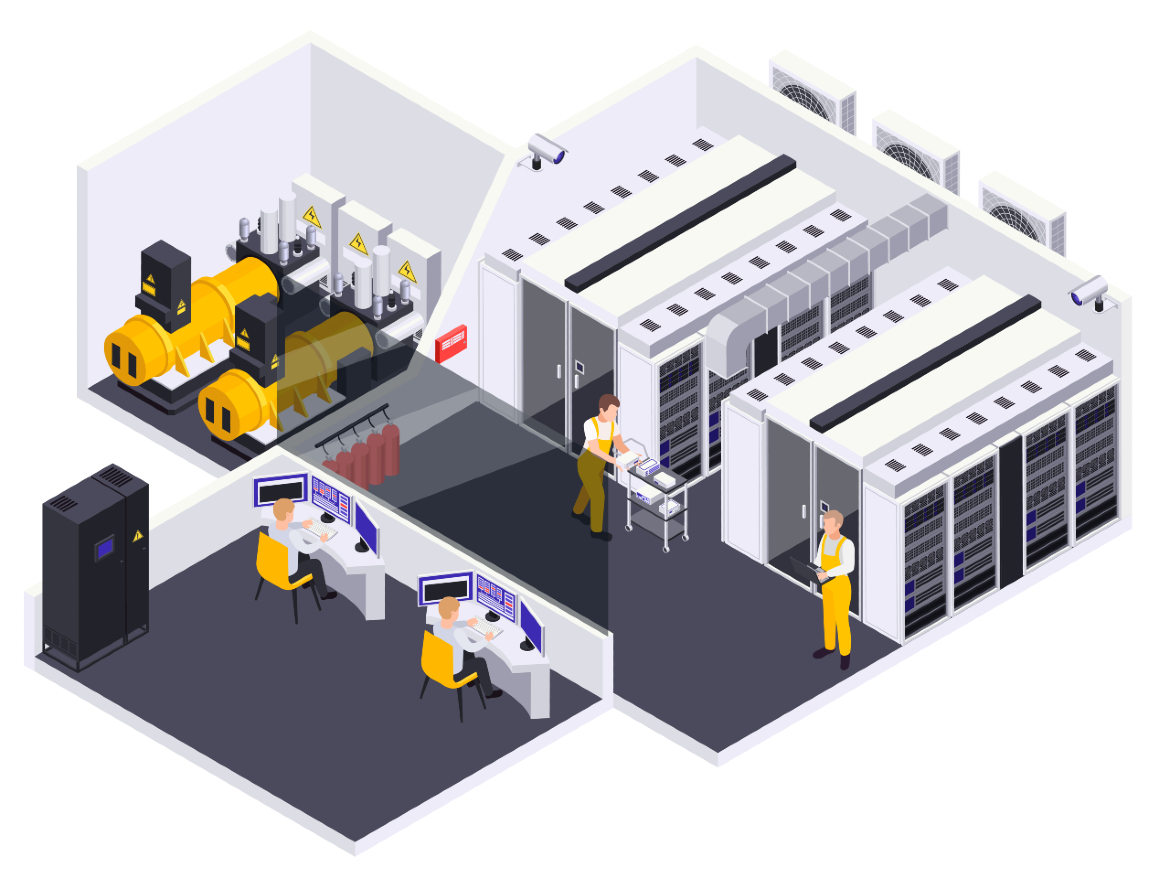
What do We Look for in Candidates for Our Data Centre Teams?
Posted on:
by Mark Prizeman
Data Centre Guidance
At GemPool, a significant part of what we do in our Infrastructure practice is recruiting top talent for our clients in the data centre space. This is a truly unique and challenging environment, but it’s also an exciting space with numerous opportunities for career progression. Whether you’re a hardware enthusiast looking to gain essential industry experience or a seasoned technician aiming to advance your career, we’ve got you covered with guidance on what will help you along your way.

Hard Skills, technical ability and certifications
The level of experience required for a role can vary significantly depending on the position. One area we focus on is recruiting at an operative level. These roles provide a fantastic entry point for hardware enthusiasts to gain experience in a data centre environment and build upon the skills they’ve self-taught.
So, what do we mean by hardware enthusiast? We’re talking about candidates who have spent time tinkering with computers—perhaps building PCs is a hobby of yours. If you can strip down a PC and easily identify, repair, and replace components, you’re on the right path. For example, we often ask candidates to describe the process of removing and replacing a CPU in detail. Demonstrating strong knowledge of BIOS, CMOS, and RAID configurations, among other technical specifics, is a big plus.
We’ve seen candidates with this kind of background truly thrive in data centre roles. All those years of salvaging parts and creating custom builds show creativity and resourcefulness, two qualities that are highly valued in a fast-paced, high-demand environment.
To boost your chances of landing one of these roles, we strongly recommend earning certifications like CompTIA A+. This will solidify your understanding of computer components and systems and help you better articulate the knowledge you’ve already gained over the years.
As you gain more experience and look to move up the ladder, upskilling becomes essential. The more advanced the work becomes, the more you’ll need to deepen your networking knowledge. Completing certifications such as CompTIA Network+ or CCNA will significantly enhance your career prospects and ability to succeed in more senior data centre roles.
Understanding the role and environment
One of the key aspects of succeeding in a data centre role is fully understanding the environment. As we mentioned earlier, working in a data centre can be challenging. It’s loud, it can get quite warm, and it can be intimidating to walk into for the first time. Spending time researching and familiarising yourself with the data centre environment will help you better prepare for what lies ahead.
Another important factor is the safety and security protocols. Data centres are highly secure environments, and compliance with safety procedures is non-negotiable. Every action you take should be done with safety in mind—not just for yourself but for the entire team. Situational awareness is key, as is understanding the security measures in place. By making safety a priority, you can ensure both your well-being and that of your colleagues.
Being personable
Technical skills are important, but they will only get you so far. Being personable and open to learning is equally valuable. Demonstrating enthusiasm and a desire to grow will help you take on more responsibility and build trust with your more experienced colleagues.
Effective communication is essential for working in teams, whether it's discussing technical challenges, offering ideas to improve workflows, or receiving constructive feedback. Additionally, the ability to remain calm under pressure is crucial, as the fast-paced nature of data centres can sometimes lead to stressful situations. Maintaining composure will help minimise errors and keep operations running smoothly.
The Growing Role of AI in Data Centres
In recent years, artificial intelligence (AI) has revolutionised the way data centres operate. AI is now playing a key role in optimising server maintenance, automating hardware and software troubleshooting, and enhancing the overall efficiency of data centre operations.
One area where AI is particularly impactful is predictive maintenance. AI algorithms can monitor hardware performance in real-time, identifying potential issues before they escalate into major failures. This allows data centre technicians to address problems proactively, reducing downtime and extending the lifespan of equipment.
AI-powered tools can also assist in hardware and software troubleshooting. These systems can analyse vast amounts of data from servers and network devices, quickly pinpointing the root cause of issues and even suggesting solutions. This automation significantly reduces the time needed to resolve technical problems, which is crucial in an industry where downtime can be costly.
For candidates looking to move into data centre roles, familiarity with AI tools and technologies is increasingly becoming a valuable skill. Whether it’s understanding how AI is used for server monitoring or learning about the integration of AI in automated maintenance tasks, these skills will position you as a forward-thinking candidate in a rapidly evolving industry.
Upskilling in areas like AI and automation will not only make you more competitive but also help you stay ahead in an industry where technological advancements are reshaping traditional roles. Certifications in AI, machine learning, or even cloud-based data centre management tools like Microsoft Azure and AWS will be highly advantageous for your career growth.
Ready to Join a Data Centre Team?
If you’re looking for a role in the data centre environment, we have numerous opportunities across all levels of experience. Whether you’re starting out or looking to advance, we can help you on your journey. Feel free to reach out to me or check out our Data Centre Job Search Toolkit to explore the possibilities.







